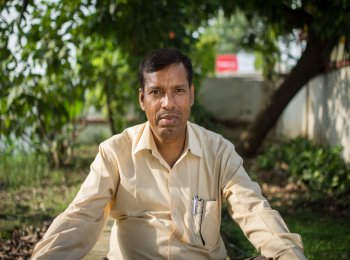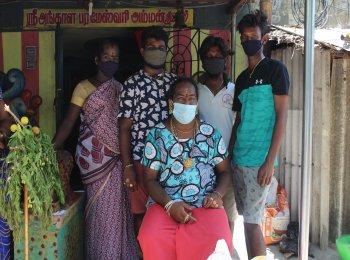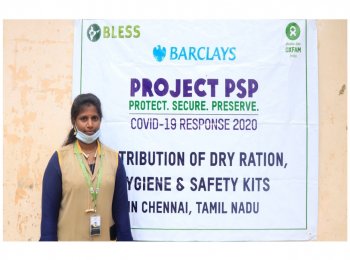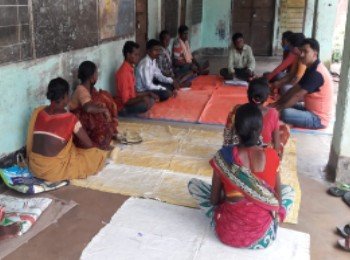Error message
- Warning: Use of undefined constant Blog - assumed 'Blog' (this will throw an Error in a future version of PHP) in oxfamfrontend_preprocess_breadcrumb() (line 1940 of themes/custom/oxfamfrontend/oxfamfrontend.theme).
oxfamfrontend_preprocess_breadcrumb(Array, 'breadcrumb', Array) (Line: 287) Drupal\Core\Theme\ThemeManager->render('breadcrumb', Array) (Line: 431) Drupal\Core\Render\Renderer->doRender(Array, ) (Line: 200) Drupal\Core\Render\Renderer->render(Array) (Line: 501) Drupal\Core\Template\TwigExtension->escapeFilter(Object, Array, 'html', NULL, 1) (Line: 91) __TwigTemplate_2b51de83e80063ec313274ce6f3ceba482516f92c663ad86a8dc53843f4be9ec->block_content(Array, Array) (Line: 216) Twig\Template->displayBlock('content', Array, Array) (Line: 80) __TwigTemplate_2b51de83e80063ec313274ce6f3ceba482516f92c663ad86a8dc53843f4be9ec->doDisplay(Array, Array) (Line: 455) Twig\Template->displayWithErrorHandling(Array, Array) (Line: 422) Twig\Template->display(Array) (Line: 434) Twig\Template->render(Array) (Line: 64) twig_render_template('core/themes/stable/templates/block/block.html.twig', Array) (Line: 384) Drupal\Core\Theme\ThemeManager->render('block', Array) (Line: 431) Drupal\Core\Render\Renderer->doRender(Array) (Line: 444) Drupal\Core\Render\Renderer->doRender(Array, ) (Line: 200) Drupal\Core\Render\Renderer->render(Array) (Line: 501) Drupal\Core\Template\TwigExtension->escapeFilter(Object, Array, 'html', NULL, 1) (Line: 63) __TwigTemplate_bb2825036b7e08c981ee935ff8d097d8f761a87ec4f84f92cfe75e7cae5886bd->doDisplay(Array, Array) (Line: 455) Twig\Template->displayWithErrorHandling(Array, Array) (Line: 422) Twig\Template->display(Array) (Line: 434) Twig\Template->render(Array) (Line: 64) twig_render_template('themes/custom/oxfamfrontend/templates/system/page--news.html.twig', Array) (Line: 384) Drupal\Core\Theme\ThemeManager->render('page', Array) (Line: 431) Drupal\Core\Render\Renderer->doRender(Array, ) (Line: 200) Drupal\Core\Render\Renderer->render(Array) (Line: 501) Drupal\Core\Template\TwigExtension->escapeFilter(Object, Array, 'html', NULL, 1) (Line: 377) __TwigTemplate_84ae86668151776ad24629f511bb4827c89c640cfc686ccf61ea2115b5f096d9->doDisplay(Array, Array) (Line: 455) Twig\Template->displayWithErrorHandling(Array, Array) (Line: 422) Twig\Template->display(Array) (Line: 434) Twig\Template->render(Array) (Line: 64) twig_render_template('themes/custom/oxfamfrontend/templates/system/html.html.twig', Array) (Line: 384) Drupal\Core\Theme\ThemeManager->render('html', Array) (Line: 431) Drupal\Core\Render\Renderer->doRender(Array, ) (Line: 200) Drupal\Core\Render\Renderer->render(Array) (Line: 147) Drupal\Core\Render\MainContent\HtmlRenderer->Drupal\Core\Render\MainContent\{closure}() (Line: 573) Drupal\Core\Render\Renderer->executeInRenderContext(Object, Object) (Line: 148) Drupal\Core\Render\MainContent\HtmlRenderer->renderResponse(Array, Object, Object) (Line: 90) Drupal\Core\EventSubscriber\MainContentViewSubscriber->onViewRenderArray(Object, 'kernel.view', Object) call_user_func(Array, Object, 'kernel.view', Object) (Line: 111) Drupal\Component\EventDispatcher\ContainerAwareEventDispatcher->dispatch('kernel.view', Object) (Line: 156) Symfony\Component\HttpKernel\HttpKernel->handleRaw(Object, 1) (Line: 68) Symfony\Component\HttpKernel\HttpKernel->handle(Object, 1, 1) (Line: 57) Drupal\Core\StackMiddleware\Session->handle(Object, 1, 1) (Line: 47) Drupal\Core\StackMiddleware\KernelPreHandle->handle(Object, 1, 1) (Line: 191) Drupal\page_cache\StackMiddleware\PageCache->fetch(Object, 1, 1) (Line: 128) Drupal\page_cache\StackMiddleware\PageCache->lookup(Object, 1, 1) (Line: 82) Drupal\page_cache\StackMiddleware\PageCache->handle(Object, 1, 1) (Line: 47) Drupal\Core\StackMiddleware\ReverseProxyMiddleware->handle(Object, 1, 1) (Line: 52) Drupal\Core\StackMiddleware\NegotiationMiddleware->handle(Object, 1, 1) (Line: 23) Stack\StackedHttpKernel->handle(Object, 1, 1) (Line: 708) Drupal\Core\DrupalKernel->handle(Object) (Line: 19) - Warning: Use of undefined constant News - assumed 'News' (this will throw an Error in a future version of PHP) in oxfamfrontend_preprocess_breadcrumb() (line 1944 of themes/custom/oxfamfrontend/oxfamfrontend.theme).
oxfamfrontend_preprocess_breadcrumb(Array, 'breadcrumb', Array) (Line: 287) Drupal\Core\Theme\ThemeManager->render('breadcrumb', Array) (Line: 431) Drupal\Core\Render\Renderer->doRender(Array, ) (Line: 200) Drupal\Core\Render\Renderer->render(Array) (Line: 501) Drupal\Core\Template\TwigExtension->escapeFilter(Object, Array, 'html', NULL, 1) (Line: 91) __TwigTemplate_2b51de83e80063ec313274ce6f3ceba482516f92c663ad86a8dc53843f4be9ec->block_content(Array, Array) (Line: 216) Twig\Template->displayBlock('content', Array, Array) (Line: 80) __TwigTemplate_2b51de83e80063ec313274ce6f3ceba482516f92c663ad86a8dc53843f4be9ec->doDisplay(Array, Array) (Line: 455) Twig\Template->displayWithErrorHandling(Array, Array) (Line: 422) Twig\Template->display(Array) (Line: 434) Twig\Template->render(Array) (Line: 64) twig_render_template('core/themes/stable/templates/block/block.html.twig', Array) (Line: 384) Drupal\Core\Theme\ThemeManager->render('block', Array) (Line: 431) Drupal\Core\Render\Renderer->doRender(Array) (Line: 444) Drupal\Core\Render\Renderer->doRender(Array, ) (Line: 200) Drupal\Core\Render\Renderer->render(Array) (Line: 501) Drupal\Core\Template\TwigExtension->escapeFilter(Object, Array, 'html', NULL, 1) (Line: 63) __TwigTemplate_bb2825036b7e08c981ee935ff8d097d8f761a87ec4f84f92cfe75e7cae5886bd->doDisplay(Array, Array) (Line: 455) Twig\Template->displayWithErrorHandling(Array, Array) (Line: 422) Twig\Template->display(Array) (Line: 434) Twig\Template->render(Array) (Line: 64) twig_render_template('themes/custom/oxfamfrontend/templates/system/page--news.html.twig', Array) (Line: 384) Drupal\Core\Theme\ThemeManager->render('page', Array) (Line: 431) Drupal\Core\Render\Renderer->doRender(Array, ) (Line: 200) Drupal\Core\Render\Renderer->render(Array) (Line: 501) Drupal\Core\Template\TwigExtension->escapeFilter(Object, Array, 'html', NULL, 1) (Line: 377) __TwigTemplate_84ae86668151776ad24629f511bb4827c89c640cfc686ccf61ea2115b5f096d9->doDisplay(Array, Array) (Line: 455) Twig\Template->displayWithErrorHandling(Array, Array) (Line: 422) Twig\Template->display(Array) (Line: 434) Twig\Template->render(Array) (Line: 64) twig_render_template('themes/custom/oxfamfrontend/templates/system/html.html.twig', Array) (Line: 384) Drupal\Core\Theme\ThemeManager->render('html', Array) (Line: 431) Drupal\Core\Render\Renderer->doRender(Array, ) (Line: 200) Drupal\Core\Render\Renderer->render(Array) (Line: 147) Drupal\Core\Render\MainContent\HtmlRenderer->Drupal\Core\Render\MainContent\{closure}() (Line: 573) Drupal\Core\Render\Renderer->executeInRenderContext(Object, Object) (Line: 148) Drupal\Core\Render\MainContent\HtmlRenderer->renderResponse(Array, Object, Object) (Line: 90) Drupal\Core\EventSubscriber\MainContentViewSubscriber->onViewRenderArray(Object, 'kernel.view', Object) call_user_func(Array, Object, 'kernel.view', Object) (Line: 111) Drupal\Component\EventDispatcher\ContainerAwareEventDispatcher->dispatch('kernel.view', Object) (Line: 156) Symfony\Component\HttpKernel\HttpKernel->handleRaw(Object, 1) (Line: 68) Symfony\Component\HttpKernel\HttpKernel->handle(Object, 1, 1) (Line: 57) Drupal\Core\StackMiddleware\Session->handle(Object, 1, 1) (Line: 47) Drupal\Core\StackMiddleware\KernelPreHandle->handle(Object, 1, 1) (Line: 191) Drupal\page_cache\StackMiddleware\PageCache->fetch(Object, 1, 1) (Line: 128) Drupal\page_cache\StackMiddleware\PageCache->lookup(Object, 1, 1) (Line: 82) Drupal\page_cache\StackMiddleware\PageCache->handle(Object, 1, 1) (Line: 47) Drupal\Core\StackMiddleware\ReverseProxyMiddleware->handle(Object, 1, 1) (Line: 52) Drupal\Core\StackMiddleware\NegotiationMiddleware->handle(Object, 1, 1) (Line: 23) Stack\StackedHttpKernel->handle(Object, 1, 1) (Line: 708) Drupal\Core\DrupalKernel->handle(Object) (Line: 19)
Most Indian banks fail on policies of climate change and human rights
- By Oxfam India
- 30 Sep, 2019
The first edition of Fair Finance Guide India scorecard released today finds that while Indian banks have policies on parameters of financial inclusion and corruption, banks are found wanting on social, environmental and human rights’ issues in their investment policies.
Environmental, Social and Governance (ESG) factors have become very popular among investors and financial institutions to identify and mitigate investment risks.
“Indian banks demonstrate their leadership on issues of financial inclusion and tackling corruption. However, their inaction to deal with climate emergency and human rights issues is very worrying. This inaction leaves the Indian banking sector vulnerable to investment risks arising due to the climate emergency. The sector is also likely to be directly or indirectly linked to human rights violations caused by the companies they finance,” said Namit Agarwal, Private Sector Engagement Lead at Oxfam India.
Fair Finance Guide India is a group of civil society organisations to create an ecosystem amongst financial sector actors to recognise the Environment, Social and Governance (ESG) risks in their investments.
The policy assessment is a scorecard of policy disclosures of a sample of eight Indian banks (public and private): State Bank of India, Federal Bank, Punjab National Bank, Bank of India, Indian Overseas Bank, IDFC Bank, HDFC Bank and Yes Bank. The assessment covers ten themes across ESG domain: Nature and Climate Change; Labour Rights, Human Rights, Gender Equality, Financial Inclusion and Arms; Transparency and Accountability, Corruption and Tax. These themes are drawn from existing international standards and frameworks, aligned with India’s National Voluntary Guidelines on Responsible Finance as well as National Guidelines on Responsible Business Conduct.
On the scorecard, 3 out of 8 Indian banks have scored high (above 75%) on the Fair Finance Guide India policy assessment on financial inclusion, with corruption the next highest scoring area. 7 out of 8 banks scored zero on the themes of climate change and environment while one bank (IDFC Bank) scored 8%. Banks have also scored poorly on the themes of labour rights and human rights. 7 out of 8 banks scored between 0-8% while only one bank (IDFC) scored 42%.
India has in place better responsible business frameworks compared to other emerging economies. India’s recent launch of National Guidelines on Responsible Business Conduct lays a good framework for Indian businesses to address environment, social and governance issues. India also has an IBA-supported National Voluntary Guidelines for Responsible Finance that clearly articulates how banks and other financial institutions can adopt ESG criteria in lending decisions as well as in their own operations.
“While SEBI’s Business Responsibility Report seeks data and information from the top 500 companies on their operations and its impact, given the different nature of stakeholder engagement vis-a-vis banks, it is unable to capture fully the activities and the resultant impact of Financial Institutions[1]. As a result, there is a data deficit, which underlines the need for a separate assessment of this sector. Fair Finance Guide acknowledges the crucial role banks play in the development of an inclusive economy, and the path they can pave towards sustainable development through responsible financing," said Ekta Verma and Jhumki Dutta from Partners in Change.
Better policy disclosures by banks is a beginning towards a responsible and accountable banking sector. Gaps in disclosures are early signs of systemic risks.
The key highlights of the Fair Finance Guide India policy assessment are as follows:
- Financial inclusion theme has the highest aggregate score for the eight assessed banks with 2 banks scoring more than 80% and the other six falling in the range of 50-75%. The fact that all the eight banks scored high on this theme is demonstrative of sustained efforts by the government, RBI and banks in this direction.
- Corruption is the second highest scoring theme, though there is much that needs to be done: with one bank with the highest score of 42%. Policy actions taken to address issues of corruption show some visible results as far as policy commitments by banks are concerned.
- Under the environment category, 7 out of 8 banks scored zero, one bank (IDFC Bank) scored 8%. While there appears to be a lot of interest in the area of environment among financial institutions in general, the banking sector is yet to align itself with the opportunities that are available.
- Under human rights category, 7 out of 8 banks scored between 0-8% while only one bank (IDFC) scored 42%. With India committed to strengthening its commitment towards social issues and human rights through National Guidelines on Responsible Business Conduct (NGRBC) and National Action Plan (NAP), the banking sector has much ground to cover. These policy changes provide an opportunity for the banking sector to prepare and respond with appropriate strategies and commitments.
This assessment can serve as a baseline that enables the Indian banking sector to prepare itself for facing and addressing challenges of sustainability. It also provides an opportunity for Indian banks to assume the leader’s role in transforming the Indian banking sector to set a benchmark for sustainable, responsible and fair finance.
Banks can choose to support companies that support living wages, integrate labour rights in their supply chains, respect human rights and protect the environment. This way the banking sector can contribute to making India a truly sustainable and inclusive economy.
Read the report https://fairfinanceindia.org/media/495340/fair-finance-india-policy-assessment-report.pdf
About Fair Finance Guide International
Recognising the strategic importance of financial institutions, the Fair Finance Guide has been established to encourage a ‘race to the top’ among banks and other financing entities from a sustainability perspective. Fair Finance Guide International (FFGI) is an international civil society network initiated by Oxfam which seeks to strengthen banks and other financial institutions’ commitment to social, environmental and human rights standards.
FFGI is currently active in 11 countries: Belgium, Brazil, France, Germany, Indonesia, India, Japan, The Netherlands, Norway, Sweden and Thailand. In every country, a coalition of civil society groups with expertise in areas relevant for monitoring and assessing the financial sector operates under FFGI’s umbrella. FFGI coalitions often include development and human rights organisations, labour unions, environmental groups and consumer organisations.
About Fair Finance India
Fair Finance India is a civil society led coalition working towards ensuring a sustainable financial sector in the country. Fair Finance India stimulates greater transparency and accountability in the financial sector by encouraging the integration of human rights standards and other ESG criteria in banks and other financial institutions’ policies.
The Fair Finance India coalition believes that transformational changes in policies and practices can end poverty and extreme inequalities. This can be achieved only with an active and engaged civil society working with multiple stakeholders. It is our view that such collaboration can strengthen the financial sector in India by ensuring that due diligence, encompassing the integration and prioritisation of ESG factors and human rights standards in policies and practices is done by banks in their corporate investments and lending.
Fair Finance India is a part of Fair Finance Guide International.
FOR MEDIA QUERIES PLEASE CONTACT HIMANSHI MATTA, 91-8860182310 or write at himanshi@oxfamindia.org
* For the banks one of the main stakeholders are the clients, including companies and individuals. Therefore, any impact on environment, human rights, corruptions by these stakeholders, are linked to the bank, as the bank is understood, in the FFGI methodology, as a facilitating agent.
Recent News
Guest workers are hosts in this kitchen
01 Apr, 2020
Covid-19 India Press Release
30 Mar, 2020
Covid-19 Global Press Release
30 Mar, 2020
#LocatingTheBreach
28 Feb, 2020







